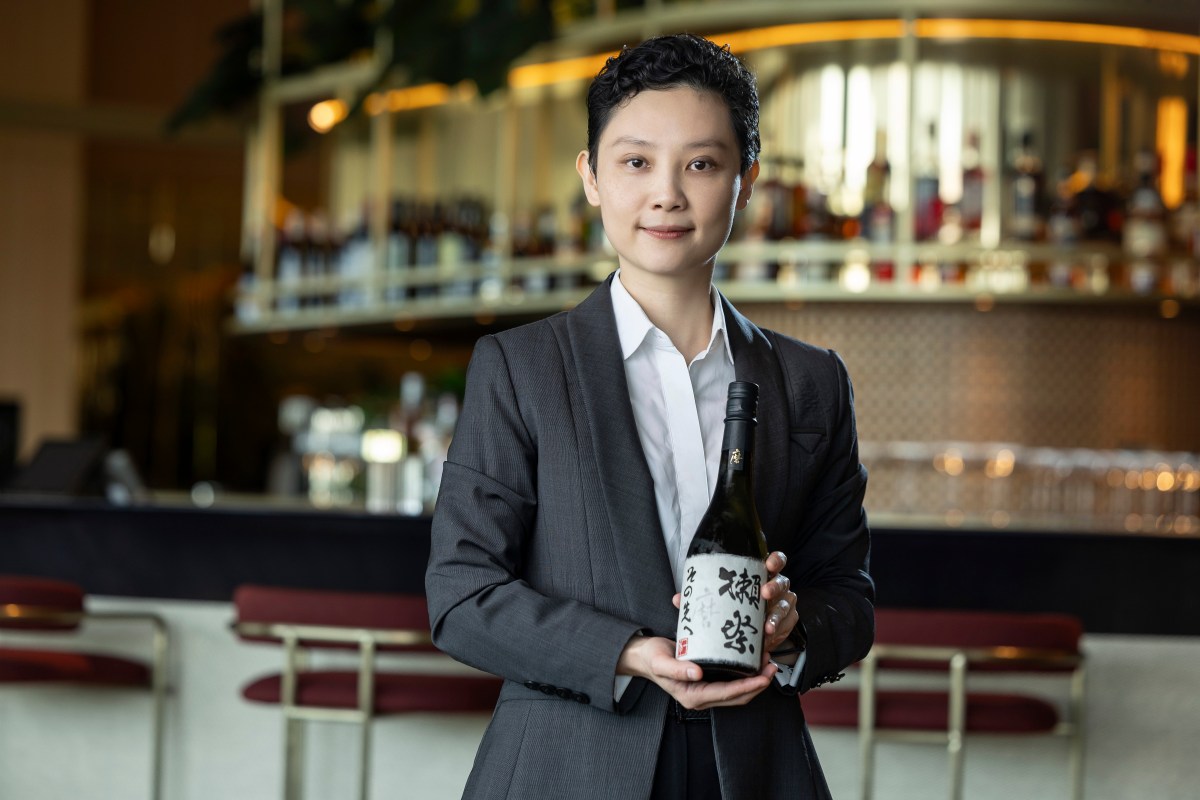On International Women’s Day every year, the voices and stories of women across the world are celebrated, as we address the issues that cause gender inequality and diversity. But despite these issues remaining, such voices and stories take a backseat once the day is done.
We think it’s worth doing the opposite and actively challenging the issues that create these gaps in our industry, which is why we launched our weekly Wednesday Women series, where we profile the stories of the inspiring women in this great and wide industry.
For saké specialist Jenny Wong, her journey into the niche world of saké began in Switzerland in 2008. While studying hospitality, she became captivated by the meticulous craftmanship behind the beverage, and it was here that she first established her love of saké.
Although saké remains an underrepresented category in many parts of the world, Wong pursued it with a singular focus. She travelled from Switzerland to Japan to train under saké master and award-winning bartender Masahiko Endo San, building a wealth of knowledge through practice and dedication.
“It was here where I became infatuated by saké, and appreciated the knowledge, practice, and consistency to it. I was a sponge during my time with the master, absorbing as much information as I possibly could. His methods are instilled in me, which has shaped me into the saké specialist I am today,” W0ng told The Shout.
Her path then led her through the dynamic hospitality scenes of Hong Kong, Singapore and Thailand, where she continued to deepen her understanding of sake.
“Places like Hong Kong, Singapore, and Thailand are far more advanced in terms of saké knowledge and consumption which has provided me with a deep understanding of saké, how to engage with guests who are well-versed and are willing to experiment with new and exciting saké options, no matter the budget,” she explains.
Now, based in Australia, Wong brings that global expertise to Brisbane. On a mission to elevate the city’s saké scene, she is dedicated to curating an authentic saké collection at Sokyo.
“In Australia, saké isn’t a common drink of choice, so it has been very much an educational experience here, sourcing saké that is more introductory, and showcasing the flavours alongside well-known Japanese dishes.”
Making saké matter in Australia
Since making Australia home, Wong has remained deeply committed to her craft. As a top 100 contender at the 2022 Diageo World Class competition, and a finalist in the Moutai Enter the Dragon 3 Cocktail Competition, she continues to push boundaries.
Though her saké knowledge has been years in the making, Wong is just as focused on the future of the category. She’s passionate about helping bartenders see its versatility, championing it both as a traditional serve and a dynamic ingredient in cocktail programs.
“Whether you are after a light-bodied or full-bodied cocktail, there are many sakés out there to incorporate. For example, cocktails that utilise gin can be easily swapped for light and airy saké.
“The great thing about sake is the range of flavour combinations it comes with, which means you can be really creative with how saké is used. If you want to create a Martini cocktail but utilise saké – it works really well with a light-bodied saké. If you’re looking to recreate a Cosmopolitan, a fruity saké is the way to go. Experimenting with saké is never boring.
“There are two types of saké I would recommend for those who are experimenting for the first time. If their palate leans toward a fruity/light body, a Junmai Ginjo Saké or if they prefer a medium body, a Junmai variety works well,” she added.
When it comes to sake, Wong believes Australia’s hospitality industry has come a long way in the last five years, but she still hopes to see saké become more mainstream in Australia, and sees an opportunity to educate consumers about its flavours and traditions.
“The education element still requires work. Looking overseas where saké is so celebrated, there is growing demand to see more saké, however, profiling saké in more bars/restaurants and having saké experts in these bars/restaurants to showcase the levels, flavours, and variety of saké is imperative.
“My dream would be to open a restaurant or bar where saké is the hero, with one of the top saké lists in the country. A true passion of mine is to showcase and educate Australians on the history and flavour combinations of sake,” Wong concluded.

